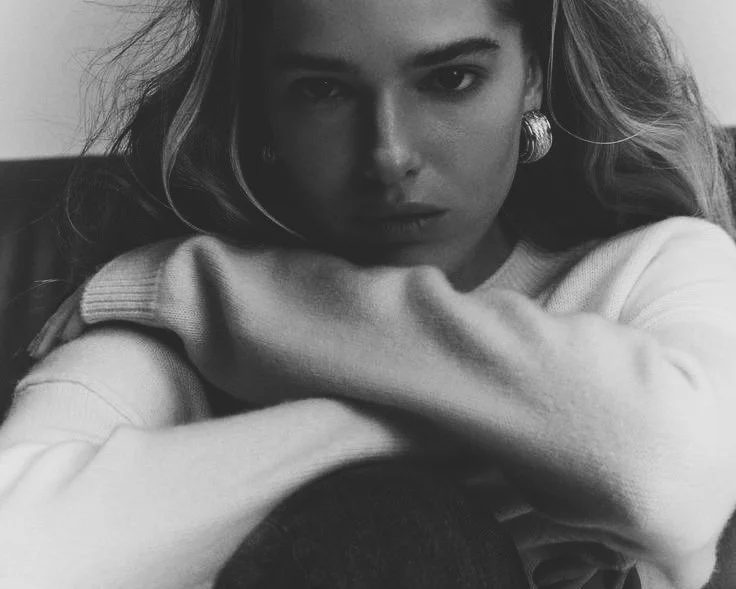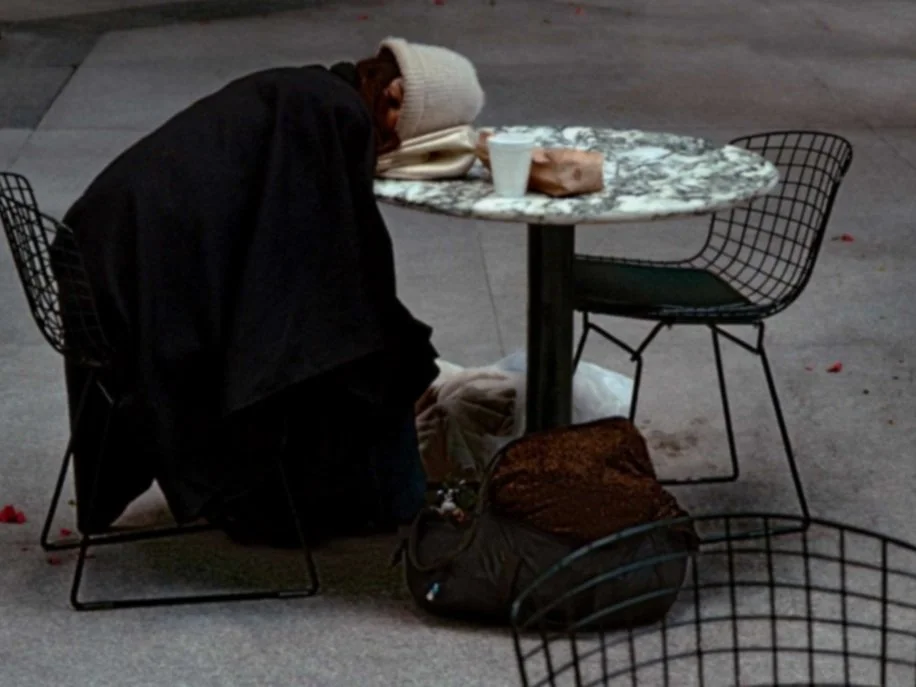A Day in the Life of an INTJ Personality Type
Step into the reflective world of an INTJ revealing the private rituals that support one of the rarest personality types.
There’s a lot of mystique around the INTJ personality type—and for good reason. Often called "The Architect" or "The Mastermind," INTJs make up only about 2–3% of the population. And when you filter for gender, INTJ women are exceptionally rare—some estimates suggest we comprise less than 1% of the total population. We’re not unicorns, exactly. But we do move through the world differently.
This article isn’t about theory. It’s about how this personality type actually feels when you live it. How it informs your rituals, your reactions, and the invisible architecture of your daily life. This is a day in the life of an INTJ—my life—with all its solitude, stimulation, precision, and private joy.
-
Introducing The Parlor, an exclusive repository of 100+ personal growth, self-care, and luxury living resources to help you thrive.
-
Explore The Dossier, our premium career and business intelligence platform for luxury industry professionals and brands.
Solitude Before Stimulation
I can’t emphasize this enough: I need to protect my mornings. More and more, I’ve realized how essential it is for me to begin each day in stillness—before the world starts pulling at me. I try to minimize appointments, avoid early calls, and create a sacred buffer of space between me and external demands. The morning is mine.
I begin most days with a cup of green tea or matcha. It’s a small but potent ritual—healthy, clarifying, gently stimulating. It gives me just enough lift to clear any residual brain fog, while still allowing me to ease into the day. I usually enjoy it either right before or after my morning walk.
Peace is a non-negotiable need for me, especially in the early hours. I need to feel a sense of quiet in my environment and in my mind. That doesn’t necessarily mean doing nothing—it just means not being bombarded. The best mornings are the ones where I can ease into my own thoughts, do my routine slowly, and exist without explanation.
Movement = Mental Alchemy
I walk a lot—anywhere from 15,000 to 20,000 steps per day. Walking is a cornerstone of my mental health. My first walk of the day is in the mornings along the lake, where I can be surrounded by beauty, movement, and rhythm, without being overstimulated.
Walking is my processing time. It’s where I untangle thoughts, refine ideas, and find solutions. If possible, I will walk while on a phone call or taking a meeting and, oddly, it helps me be more present. I get antsy when I sit stagnant for too long, and this minimizes that.
Ideas often arrive mid-stride. Concepts for writing, solutions to problems, new ways of seeing something. My brain becomes sharper when my body is in motion.
Thinking is Living
Mental stimulation isn’t optional for me—it’s essential. I need to be challenged, inspired, engaged. I’m most alive when I’m thinking critically, analyzing, solving, strategizing. Without that, I feel like I’m running on fumes.
Reading is a huge part of my life. I gravitate toward non-fiction—philosophy, psychology, strategy—because I like to learn, internalize, and then apply what I’ve learned. I’m not someone who just gathers knowledge for the sake of it. I use it. I make changes in my life based on what I’ve absorbed. And I love sharing those insights with others.
Lately, I’ve been opening up to more fiction. It’s a different kind of stimulation—more emotional, more narrative, more about the human condition. But even then, I tend to gravitate toward elegant prose or psychologically rich characters.
Emotional Control ≠ Emotional Absence
There’s a persistent myth that INTJs are emotionless or cold. That couldn’t be further from the truth. I feel deeply—I just don’t always express it in the ways people expect.
I have a high degree of emotional intelligence. I can name what I’m feeling, analyze it, understand its source, and make sense of it. I’m also highly attuned to other people’s emotional states. But I don’t get overwhelmed by emotions. I have a strong ability to separate emotion from reaction.
These days, I have decided to be a bit more expressive. I’ve learned that sharing emotion can create connection, and I’m open to that. But you’ll never find me in an emotional spiral. To me, calm isn’t suppression—it’s sovereignty.
Elevate Your Life
Take our conscious luxury course and turn your life into a masterpiece of majestic moments — tailored to your distinct tastes and personal preferences.
Perception as a Practice
One of my favorite quiet luxuries is going to a beautiful restaurant alone—ordering something light and elegant, sipping a glass of champagne, and simply observing.
I love to people-watch. Not in a judgmental way, but in an analytical one. I’m always reading the room: how people move, how they interact, how they present themselves. It’s a subtle form of research for me—fascinating, informative, even entertaining.
I don’t always need to be in the mix. Often, I’d rather be adjacent—watching, absorbing, thinking.
Writing as Self-Expression
Writing is everything to me. It’s how I think, how I make sense of the world, how I communicate. I write for my work, my blog, and myself.
There’s something magical about taking what’s in your head and translating it into something tangible. An article, a paragraph, a fully formed concept—it all begins in the quiet. Writing is both self-expression and self-discipline. It’s my version of architecture.
When I’m in the zone, I can write for hours. It’s immersive, satisfying, and mentally nourishing. It’s one of the best things I do with my time.
Organized Mind, Organized World
I love order. Physical order. Digital order. Visual order. Organization is more than just a preference for me—it’s a form of self-regulation.
Every part of my space is organized. There’s not a single drawer, shelf, or folder that’s chaotic. I don’t do it out of obligation—I do it because it soothes me. Tidying is a therapeutic act. It clears mental clutter.
I usually tidy in the evening as part of my wind-down. There’s something deeply satisfying about putting things back in their place, restoring beauty and harmony before the day ends.
Beauty with Purpose
I love beautiful things. But not in an extravagant or maximalist way. I crave harmony. I don’t collect excessive things. I curate beautiful essentials. To me, luxury isn’t abundance—it’s refinement.
My aesthetic leans minimal, but intentional. I believe in beauty that serves a purpose. I like when everyday objects—household tools, skincare bottles, writing pens—are visually pleasing. Function and form should coexist.
The Perfect Companion
I’ve had a cat before, and I’m seriously considering adopting one again. Cats, to me, are the perfect animal for an INTJ. They’re emotionally secure, highly observant, stealthy, strategic, and deeply independent. They’re affectionate without being needy. They seek connection on their terms.
There’s something powerful about their quiet presence and energy—like they understand the value of solitude as much as I do.
Disconnecting to Recenter
After a long period of social interaction, I need to pull back. Sometimes I disappear for a few days, not to be mysterious or avoidant, but simply to recharge.
Evenings are also just as sacred as mornings. They’re my time to disconnect, recalibrate, and return to myself. Whether I’m reading, organizing, writing, or just being still, I use the night to restore clarity.
Solitude isn’t loneliness. It’s alignment.
Depth by Design
Being an INTJ isn’t about being rigid or robotic. It’s about being intentional. Every part of my day is a reflection of who I am—from the things I need to the way I move through the world. I’ve learned to design a life that supports my nature. A life that prioritizes peace, precision, stimulation, and quiet observation. A life that allows space to think, to feel, to create, to refine.
If you’re an INTJ—or love one—I hope this offers a glimpse into the inner world we protect so fiercely. Underneath the structure is something soft, powerful, and deeply alive.
We may move quietly, but we are always thinking, refining, envisioning. Our lives are not accidental—they are curated with purpose. And in a world that often demands constant performance, this kind of intentionality is radical.
















